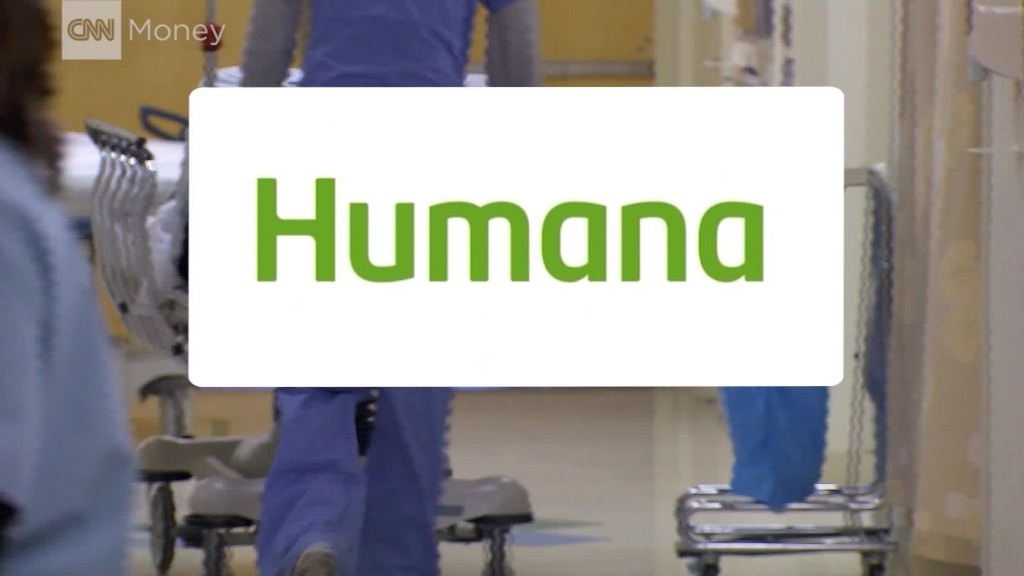
When Andy Hawk needed hernia surgery last year, his biggest worry wasn't the operation's cost but whether he'd heal in time to lead a spring bear-hunting expedition on Kodiak Island.
For the first time, the self-employed gunsmith in the state with the nation's highest medical costs and most volatile insurance market had some protection. He had coverage for all but $10,000 of the $45,000 tab.
"Before that, I was just damn lucky," said Hawk, 52, who joined the Affordable Care Act marketplace in 2013.
Hawk was relieved last month when Republican leaders in Washington hastily withdrew a House bill to replace parts of the ACA. The legislation's failure left the health care law intact while the GOP regroups on how to address rising insurance costs.
The issue is particularly acute in Alaska, the fourth most expensive state in the U.S., where a standard knee replacement may cost five times what it does in Seattle and pricey air ambulance rides are common in emergencies.
Individual health insurance premiums here climbed almost 40% annually after the ACA went into effect, and high health care costs drove all but one provider, Premera Blue Cross Blue Shield, out of the market in 2017.
Related: In California's conservative Central Valley, millions rely on Medicaid
Hawk and his girlfriend, a self-employed acupuncturist named Jennifer Jolliffe, are watching closely as state leaders grapple with preventing the law's marketplace from collapsing in Alaska. Officials are seeking a $51.6 million federal waiver to shore it up.
"I just want everyone to have health insurance," said Jolliffe, who suffered a life-threatening bacterial infection in 2009 that underscored the need for coverage.
Most of Alaska's more than 738,000 residents receive health coverage through employers or government programs. About 30,000 obtained it through the Medicaid expansion allowed by the ACA, and a smaller number of residents are in its insurance exchange. For the latter, rates have soared because insurers in the vast but sparsely populated state couldn't sign up enough healthy people to offset costs for those with expensive conditions such as end-stage renal disease and cancer.
Premera reported that last year it paid about $67 million in claims for individual members on the Alaska exchange -- with more than $16 million going for just 20 patients. "Alaska has been quite a story over the last few years," company spokeswoman Melanie Coon said. "It's not like other states."
With the market approaching collapse, Alaska tackled the problem in a novel way. Lawmakers voted last year to levy a 2.7% tax on all insurers to create a $55 million reinsurance fund that covers bills for high cost patients, stabilizing the individual market for all other customers.
"The reinsurance program could be a model for others across the U.S.," said Eric Earling, a senior vice president with State of Reform, a nonpartisan health policy communication group.
Related: Popular coverage for children under 26 may be health law's Achilles' heel
For now, it's working. The insurer just reported that it made $20 million in Alaska's individual market last year, and instead of the expected premium increase of more than 40% for 2017, its rates rose only 7.3%.
Still, premiums remain the nation's highest, $904 a month for a 40-year-old nonsmoker in Anchorage on Premera's second-lowest silver plan, which sets the benchmark for subsidy levels. Enrollment on the individual exchange took a hit, falling from about 23,000 people in 2016 to about 19,145 this year, according to the Centers for Medicare & Medicaid Services.
"Some of them just could not afford it," said Lori Wing-Heier, director of the state Division of Insurance.
The reinsurance fund -- approved by a Republican-dominated legislature and signed by an independent governor -- was a one-year deal designed to prevent the state's insurance market from imploding.
For a longer-term solution, state officials in December submitted a waiver proposal to CMS asking that the federal government funnel $51.6 million that would have been paid for 2018 premium subsidies into the reinsurance program. It would be authorized for five years, with a renewal option.
Such waivers have been encouraged by Tom Price, the new Health and Human Services Secretary, and Wing-Heier said she expects Alaska's to be approved "quite quickly" after state lawmakers tweak final language during the current legislative session.
Alaska's all-Republican congressional contingent -- including Rep. Don Young and senators Lisa Murkowski and Dan Sullivan -- have remained steadfastly opposed to the ACA but did not support the GOP House bill. Murkowski called it "a reckless repeal process" and vowed that she wouldn't support plans to cap federal funds for Medicaid that could endanger the newly insured.
Related: Obamacare's impact on this Alaska town with only one doctor's office
That was welcome news to people like Cindy Stark, 61, who runs a small sewing and embroidery business outside Anchorage and gained health insurance through Medicaid expansion. She was badly injured in horse-riding accidents in 2003 and 2008 and had struggled to pay her previous policy's $950 monthly premium and $5,000 deductible.
"I have asthma and the chronic pain," she explained recently. "My medicine now keeps me on track."
Back at the Anchorage gunsmith shop, where custom rifles and rebuilt shotguns line the walls beneath moose antlers and a wolverine pelt, Hawk has a similar take. The ACA isn't perfect, he said, but its insurance coverage means that he and Jolliffe can lead active Alaskan lives — hunting, fishing, skiing — without worrying about costs of a medical catastrophe.
Hawk worries about President Trump's vow to let the ACA "explode" and fears that, even with a full repeal, the administration will go out of its way to undermine the law.
"We don't smoke, don't drink, we're doing our part," said Hawk, who added: "I don't understand why they couldn't just fix it."
Kaiser Health News, a nonprofit health newsroom whose stories appear in news outlets nationwide, is an editorially independent part of the Kaiser Family Foundation.


